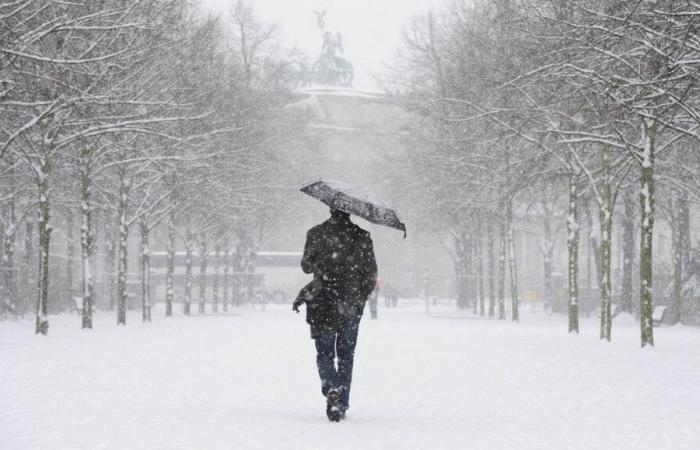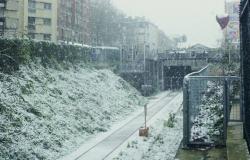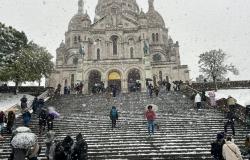
Special program devoted to literature, with two colliding news stories. The first is the recent publication of Nord by Mathias Enard, a book of Books in which the author summons texts and friendly authors. The second is the awarding of the Goncourt prize to Houris by Kamel Daoud whose echoes reach us live.
“North”: the map and the ghosts
Mathias Enard presents Nord, the first opus of a traveling tetralogy to come: “The Melancholy of the Borders“. Set in autumn in Berlin, Nord offers itself as a melancholic stroll through these places steeped in history; to warm his heart, the author recalls the stories and the authors, the anecdotes and the friends, thus recreating in the space of the text a universe in which they converse together freely about borders and their overcoming. “It is primarily a geographical exploration. The Melancholy of the Borders is a whole project of wandering to try to draw the map of a certain literature of the in-between, a literature in its confines and its limits, in order to draw a theory of the border. What barrier and frontier do literature, words, novels or poetry manage to cross?“.
Summoning, during these meditative walks, all kinds of figures from the past, near and far, “Nord“is a book of ghosts:”What do we capture in a book? Things that do not exist, beings that have never existed, and then others whose names remain and whose existence we perhaps invent about them, we put clothes on them a little as could be done. make an illusionist. The book is precisely about this illusion, about what remains, about the will, about pleasure in fact, about the desire for a ghost that we have. Literature participates in this desire for ghosts.“
Fiction / The Series Listen later
Lecture listen
“Houris” by Kamel Daoud receives the 2024 Goncourt prize
Created in 1892 by Edmond de Goncourt, the Goncourt Prize is witness to more than a century of literary history, still itself being written. Every year, at the beginning of November, the Académie Goncourt rewards the best imaginative prose work published during the year. The influence of the prize is such today, both on the reputation of the author and on the sales of the awarded work, that the nomination of a new winner has become an event of national scale. This year, it is Kamel Daoud who receives the Goncourt 2024 prize for his book Houris, a powerful novel in which he denounces the silence around the “black decade” in Algeria.
Questioned by Marie Sorbier a few moments after his nomination, Philippe Claudel, the president of the Goncourt jury comments: “Literature is fundamentally political. It is clear that in this book, this novel by Kamel Daoud we see all the power and the possibility that literature offers within the framework of a profound reinspection of history, the intimate history, the tragic history of ‘a people.”
Mathias Enard, himself nominated in 2015, recounts the effervescent atmosphere of the Drouant restaurant at the time of the nomination: “You have to imagine that. This restaurant is located on a small square, at the corner of two very Parisian, very Haussmannian streets, in this Opera district. We arrive there by car, the whole place is packed with people, you have to make your way through the crowd, the microphones held out, the photographers who obviously call out to you to photograph your face. You are taken upstairs by the restaurant staff by the back staircase, almost by the loading dock, you are put in a serving hatch to be able to reach the room where the Goncourts are. It’s a storm that starts then and ends a few months later.”
Middays of Culture Listen later
Lecture listen 28 min
News
- Nordfirst opus of a future tetralogy “The Melancholy of the Borderlands”, was published on October 2, 2024.
Sound clips
- Reading an extract from Nord by Mathias Enard by Oriane Delacroix
- Georges Perec in Fluoroscopy on France Inter in September 1978
- “Demain Berlin” from Cold War, from the 1985 album Archives





